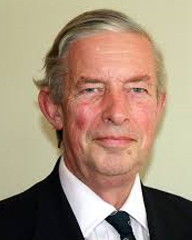Unmanned Surface Vehicles go from Concept to Service
Unmanned Surface Vehicles (USV) are now being considered for various marine roles and the drivers for rapid development are significant. Unmanned or autonomous vessels have passed through the trial and evaluation stage and are now being adopted for civilian and military applications. The maritime sector now has the opportunity to shape technology developments from legislative and end-user standpoints.
As the maritime sector is often the last to adopt new technology it is important to identify genuine innovations from other transport sectors. The driverless car is being pioneered by some of the largest companies in the world including Google, and small unmanned aircraft are being considered as a delivery method for global retailers including Amazon. As these innovations pass through rigorous regulatory approval processes there will be wider acceptance from the public when they are adopted.
Maritime Autonomous Systems (MAS) operations to date have highlighted important defence, scientific as well as economic benefits. The MAS Regulatory Working Group (MASRWG) has been formed to identify the issues related to the operation of Maritime Autonomous Systems in all of the global designated maritime zones; from the high seas into internal waters, and formulate a regulatory framework that could be adopted by the UK and other States as well as the international bodies given the responsibility to regulate the marine and maritime world.
James Fanshawe CBE - Chairman, Maritime Autonomous Systems Regulatory Working Group

James Fanshawe retired from the Royal Navy in 2005. An Anti-Submarine warfare specialist, he commanded HMS Hurworth, HMS Cleopatra, HMS Fearless and was the Commander United Kingdom Task Group and Commander of the Devonport Flotilla. He held several senior appointments ashore including Director of Plans at the UK Permanent Joint Headquarters.
James works within a mixed commercial portfolio, chairing several companies and organisations. He chairs the UK’s Maritime Autonomous Systems Regulatory Working Group on behalf of the Marine Industries Alliance. This group has now released a Code of Conduct for the safe operation of Maritime Autonomous Surface Ships (MASS).
The group is now writing a Code of Practice for MASS, having prepared the proposal submitted by the UK to the International Maritime Organisation for a regulatory scoping exercise for Maritime Autonomous Surface Ships, which was accepted into the Maritime Safety Committee (MSC) work programme in June 2017.











